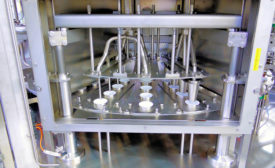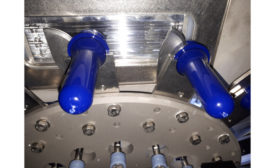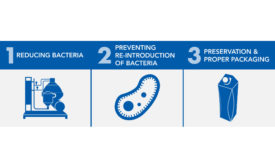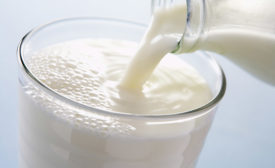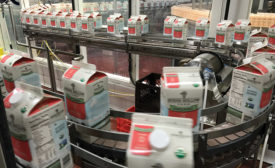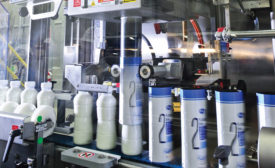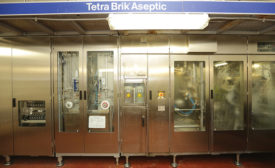Home » Keywords: » Extended Shelf Life
Items Tagged with 'Extended Shelf Life'
ARTICLES
Aseptic and ESL growing in importance
Extended shelf life and aseptic processes are becoming increasingly popular as dairy processors seek to keep pace in an increasingly competitive market.
December 4, 2023
The dairy packaging sector feels the heat
Aseptic and retort packaging are becoming more popular and potent forces in the war against pathogens.
December 3, 2021
ESL, aseptic processing suppliers extend shelf life
New innovations in ESL and aseptic processing are allowing processors to meet consumer demand for complex formulations and longer shelf lives
December 18, 2019
ESL technology delivers more ways to add value to milk
Investing in technology that extends shelf life by even only five days can have a positive impact on the bottom line.
March 13, 2018
ESL processing expands a dairy’s revenue stream
Dairy brands looking to capitalize on consumers’ desire for nutritious, portion-packed milk can do so by investing in extended-shelf life technology.
April 13, 2017
Byrne Dairy extends its reach with ESL fluid milk products
The benefits of extended shelf life processing include opportunities in product innovation and extending the distribution area for dairy products.
April 11, 2017
Extend your reach with ESL products
The advantages of manufacturing extended shelf life milks include increased plant efficiency, reduced distribution costs and reduced product returns.
April 15, 2016
EVENTS
Stay ahead of the curve. Unlock a dose of cutting-edge insights.
Receive our premium content directly to your inbox.
SIGN-UP TODAYCopyright ©2025. All Rights Reserved BNP Media.
Design, CMS, Hosting & Web Development :: ePublishing


